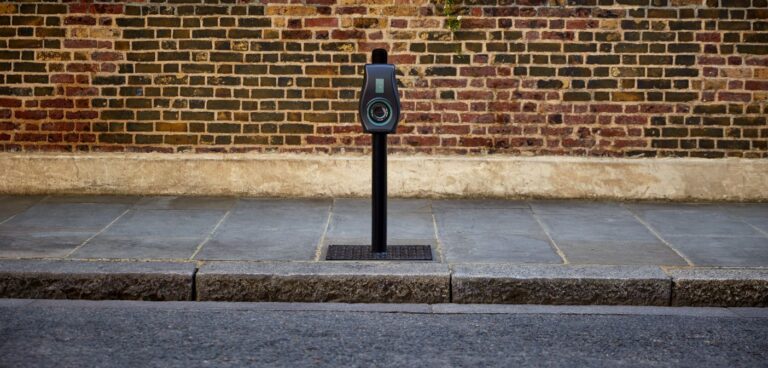Lambeth Council and EV charging company Connected Kerb have partnered on a project to demonstrate how affordable and accessible public charging infrastructure can be deployed to tackle EV inequality and drive greater EV adoption amongst communities traditionally under-represented in the EV transition.
While UK EV registrations are up 117% in 2021 compared to last year already, according to Connected Kerb those living in urban centres, high-rise flats and council estates are significantly less likely to have access to a private driveway, making it difficult to install home charging solutions.
As a result, households with access to a driveway reportedly make up 80% of EV owners, with the remaining 20% owned by those in houses or flats with no access to off-street parking. Connected Kerb said these communities have the most to gain from clean transport due to being disproportionately exposed to the highest levels of toxic exhaust emissions and suffering significantly poorer air quality.
Chris Pateman-Jones, CEO of Connected Kerb, said: “Unfortunately, some communities are being failed by a classic chicken and egg scenario. Without high EV adoption, charge point operators won’t build public charging, and without reliable charging, why would anyone go electric? We have designed our business model to overcome this and, with Lambeth Council, we are delivering a fairer and equitable clean transport future – here and right across the UK.”
According to Lambeth Council, approximately a third of residents in the London borough live on estates managed by the council and the majority of housing does not have off-street parking, meaning a large proportion of drivers have to rely on public EV charging infrastructure.
The project includes 22 on-street EV chargers across 11 council estates in the borough to provide easy access to public charging, including those without off-street parking. Each of Connected Kerb’s chargers will provide a 7kW fast charge, suitable for habitual on-street charging where residents are parked for a predictable amount of time each day. Every charge point will feature contactless payment via the Connected Kerb app with a consistent network and tariff across the sites.
What’s more, the charging infrastructure is located below ground and installed once, with passive chargers that can be easily ‘switched on’ by adding the above ground charge point to match consumer demand. According to Connected Kerb, this business model means Lambeth will have access to a secure revenue stream to help maintain and expand the charger network.
Cllr Danny Adilypour, cabinet member for sustainable transport, environment and clean air at Lambeth Council, said: “For residents who need to use private vehicles, we recognise how important access to EV charging is to provide the confidence to switch to cars with zero emissions at the tailpipe. Projects like this help us do just that, while also helping us reach our net zero targets and improve air quality on our streets, protecting the health of our communities.”
The project forms part of the council’s wider strategy to work with multiple charge point operators to install more than 200 charge points by 2022, with the aim of ensuring every household with no access to off-street parking is within a five-minute walk of the nearest charger.
This project has been funded in part through the UK government’s On-Street Residential Charge Point Scheme, available to all local authorities in the UK. Through the scheme, 75% of the costs have been financed by the Office for Zero Emission Vehicles and the remaining costs covered by the council.





